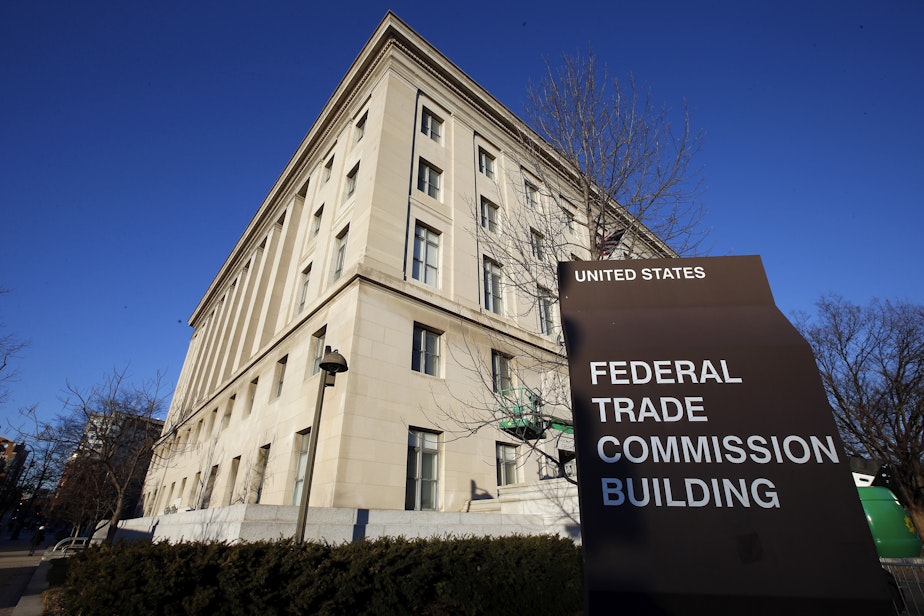What would a ban on non-compete clauses mean for tech companies in Washington state?

The Federal Trade Commission voted earlier this week to ban non-compete agreements. Those are the clauses in an employment contract that can prevent someone from leaving a company and taking a position at a rival outfit. At first glance, this change looks like it would benefit workers. But some argue that it will also make Seattle's big tech companies better.
KUOW’s Kim Malcolm reached out to Geekwire co-founder Todd Bishop for an update.
This interview has been edited for clarity.
Kim Malcolm: Remind us why tech companies will ask employees to sign these kinds of non-compete agreements in the first place.
Todd Bishop: Ostensibly, it's so that they don't take secrets from one job to another. Typically, non-compete agreements require employees to agree to not work for a competitor for a year or 18 months. The idea is that the secrets inside one company are something they should not take to another company. Companies like Microsoft and Amazon have used non-competes over the years to prevent high-level executives or valuable engineers from leaving and benefiting one of their big competitors. So, there's this balance between the secrets and the competitive interests, which are underlying a lot of the motivation in many cases.
When I read about this ban on non-competes, I instantly thought this might give more choices to, for instance, cloud computing engineers who are unhappy with their current situation. Is that what you found as you were looking around?
Indeed, and in fact, Amazon Web Services over the years has been one of the most aggressive in enforcing these agreements, especially under Andy Jassy who's now Amazon’s CEO. When he was running AWS, there were a number of high-profile lawsuits that Amazon filed against departing employees, not only to prevent them from going to places like Google in similar roles, but also to send a message to the rest of their workforce: "Hey, don't cross these agreements, because if you do, there could be consequences." As a result, with the FTC instituting this rule, if it goes into effect, this could be something that would free those engineers and executives from those shackles going forward.
I'm curious about how this might impact aerospace as well, which is well represented here in the Seattle area. I’m thinking about SpaceX, Boeing, Blue Origin. What could happen to workers there?
Non-compete agreements are common in those situations. And you can expect that a Blue Origin or SpaceX would be very wary of an engineer going from one company to another. The end of non-competes in those situations will have implications potentially. But at the same time, there are ways for companies to prevent secrets from leaking from one place to another, specifically non-disclosure agreements. NDAs can still be used. In other words, if a company employs an engineer, and that engineer goes from Blue Origin to SpaceX or vice versa, they can still be bound by an NDA that still allows them to work for the competing company. That's the big change. But they are prevented, for example, from taking the blueprints for the next big rocket from one of those companies to the other.
A legal challenge to this is already underway. The US Chamber of Commerce filed in Texas this week, claiming that the FTC does not have the authority to do this. How long could it take until this is settled?
If the court decides not to intervene, the FTC rule would take effect in August, based on the way the timing works for regulation like this. However, one of the things that the U.S. Chamber of Commerce is going to seek is an injunction to prevent this from going into effect in the meantime. So, it's reasonable to expect that this could last for years while this court proceeding plays out.
Listen to the interview by clicking the play button above.


